How To Speed Up
A Slow Computer

Arianna Gael * September 13, 2018
14 Tips to Speed Up a Slow Computer
In this comprehensive guide, we'll explore 14 valuable tips to help you get your computer running smoothly again.
What's Inside 🖥
- 1. Clean Up Disk Space
- 2. Uninstall Unused Programs
- 3. Limit Startup Programs
- 4. Upgrade Your RAM
- 5. Run a Malware Scan
- 6. Update Your Operating System and Drivers
- 7. Optimize Your Web Browser
- 8. Defragment Your Hard Drive
- 9. Upgrade Your Storage Drive to SSD
- 10. Regular Maintenance and Updates
- 11. Manage Visual Effects
- 12. Regularly Restart Your Computer
- 13. Check for Resource-Hungry Applications
- 14. Seek Professional Assistance
Not too long ago, top-dollar technology started coming down in price, largely because consumers were expected to take advantage of the “planned obsolescence” that was built into the device. If you didn’t have the skillset to upgrade your memory, install a new motherboard when yours fried, or make other technical repairs or changes, you were pretty much supposed to give up. You took it to the local computer retailer, they transferred your files for a hefty fee, and you walked out of the store with a shiny new model, minus all the software you’d already paid to install.
Unfortunately, that mindset has had far-reaching consequences. Landfills began filling up with toxic components, mainly mercury and lead. Manufacturers quit putting so many long-haul quality parts in their machines since you were probably going to ditch it for a new model in a few years. Even worse, devices hit the shelves that weren’t capable of rebooting from a factory disk or updating to the newest operating systems.
Consumers have begun to take a stand against this kind of
commercialism and rampant overspending. Thanks to subscription-based
software, online ordering for after-market components, and YouTube
channels filled with step-by-step instructions on how to troubleshoot or
upgrade, people are less likely to ditch a functioning laptop and more
likely to salvage it… or at least attempt it before buying a new one.
So what can you do with a laptop that’s slowing down—other than toss
it in the bin? Plenty! And here are some of our top tips for sifting
through the system swamp and cleaning out the troublemakers.
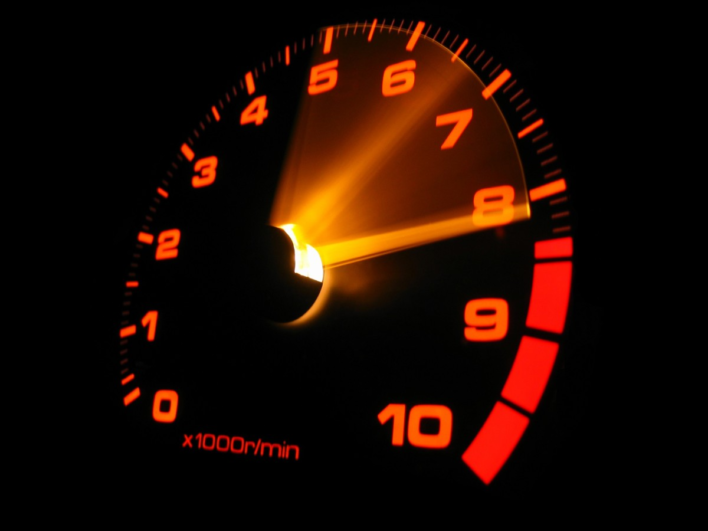
1. Clean up your files
One tech-minded friend who shall remain nameless is something of a
hoarder…a file hoarder, that is. Nothing ever gets deleted, period. This
individual has three external hard drives (two of which were made from
SATA cases and old hard drives, just to avoid throwing away files on
those drives) and two cloud-based storage subscriptions. Recently, this
person found a Word document of a college essay that had been written in
1994, still taking up room on one of the drives.
Okay, yes, that person is me… so what?!
In all seriousness, old files take a toll on your system. Imagine if
you had to carry every textbook you ever used in high school and college
with you everywhere you went. The information is there, but it’s heavy
and you don’t need 90% of it. It’s slowing you down and making you work
harder to find the information you do need.
Yes, it’s daunting, but taking the time to sift through your files
and determine what you do and don’t really need is absolutely worth it.

2. …And the rest of them
It’s not just the files you know about that are slowing you down.
When browsing the internet, your computer picks up a whole host of
unnecessary files, cookies and history. The same thing happens when you
run most programs on your computer – lots of temporary files and
settings are saved. You don’t need them, and yep, you guessed it, you’ll
be faster without them.
Fortunately, CCleaner can clean out a lot of those problems.
No, it won’t delete term papers you no longer need (but you already did
that earlier, right?), but it will get rid of cookies, temporary files,
and other useless data that interferes with your operating system’s
performance. Even better, it frees up hard disk space for the things
you do need, makes your computer faster with less crashes and system errors, and makes browsing more secure.
CCleaner has
earned its position at the top of the freeware cleaners offering the
sort of features premium programs struggle to compete with, but there
are also Professional, Network, Business, and Technician Editions
available for serious users.
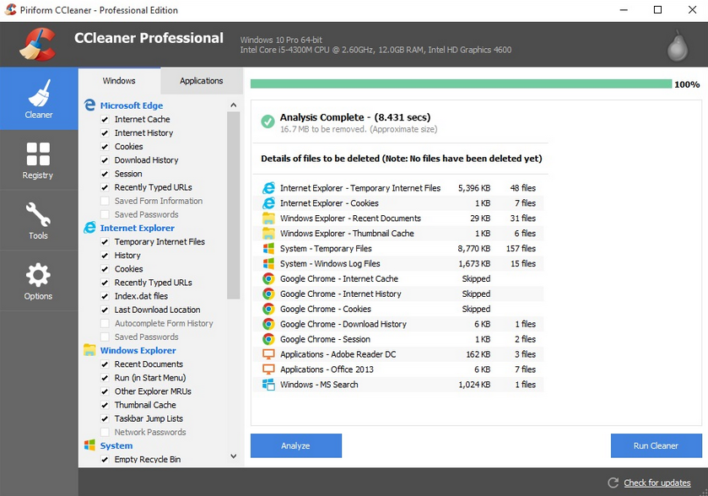
CCleaner – a powerful utility for improving your computers performance.
3. Remove/uninstall unused software
It’s not just old files and directories that can cause this type of
speed issue, though. Sometimes, it’s entire programs—ones you might not
have intended to install, others that you’ve forgotten about or that are
no longer supported—that are chewing up space and trying to load on
launch. Trying to uninstall them yourself is not only time consuming, it
also might not be effective against stubborn pre-loaded apps and
programs that look like they’re gone but leave behind remnants.
IObit Uninstaller
can handle that for you. It can uninstall Windows apps, browser
toolbars, software that came bundled with something you did want,
useless plug-ins, and more. Its scan function will seek out the things
you don’t even realize are slowing you down, while the Force Uninstall
tool will completely remove unwanted programs to free up more hard disk
space. As a security benefit, it strips away malicious browser add-ons,
those toolbars you accidentally ended up with when you didn’t uncheck
the tiny box, and more.
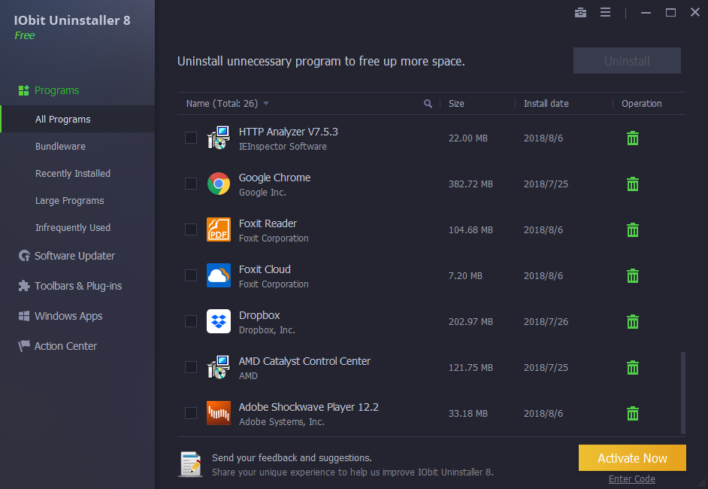
IObit Uninstaller – An easy way to remove unwanted programs
4. Ensure your software is up to date
Outdated software can cause a multitude of issues with certain
programs, including lagging and slow performance. Making sure your
software and drivers are up to date can not only help to speed up a slow
PC, but it is also one of the easiest ways to improve your cybersecurity (which can actually also maintain and improve system performance). Outdated software leaves you open to attack from malware, viruses and spyware, all of which can have a significant impact on your system and reduce its performance.
Avira Software Updater Pro
makes it easy to keep on top of your software updates. With automatic
software updating, you can make sure that your most important programs
are always up to date, reducing performance issues or threat from
cyberattacks that could slow you down.
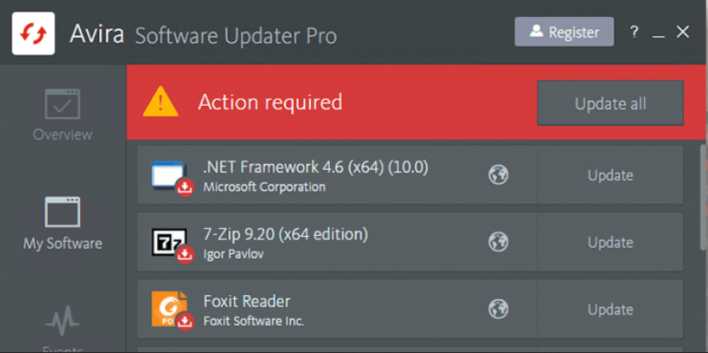
Avira Software Updater Pro – More efficient updating.
5. Get smart with antivirus
It’s so obvious, it pretty much goes without saying: you’ve got to
have a strong antivirus software installed and maintained. Viruses,
Trojans, malware, and other malicious things can not only leave you
vulnerable to more serious harm, but they can slow down your system. In
other bad news, you could have “caught” one of these infections from a
quick stumble onto the wrong website, through a company WiFi connection
after a co-worker downloaded racy pics of a celeb, etc.
But now the good news: there are some incredible antivirus titles on
the market with amazing prices, multi-device coverage, and bonus tools
like geofencing and parental controls, anti-theft locking, and more.
And get this, some antivirus software even comes bundled with
optimization features that increase the performance of your device or
computer.
Avast Premier is one of those awesome antivirus bundles, and it comes with everything from spam fighting, to zero-second
(yes, second…not day) protection, to browser clean-up, to its very own
automatic software updater. What else could you possibly need?
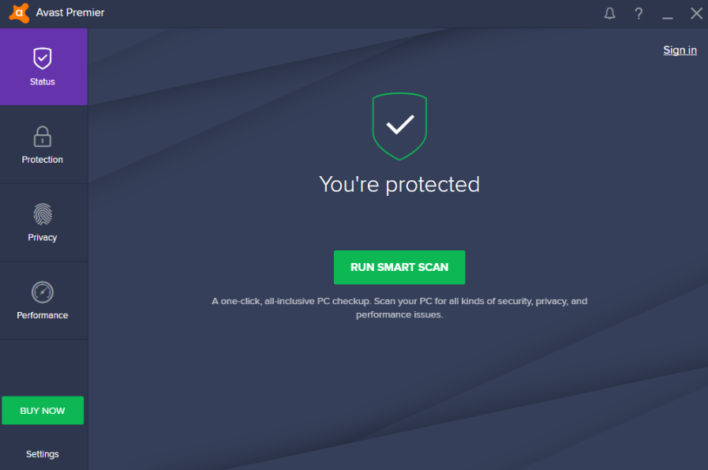
Avast Premier Antivirus – Improve your system performance, privacy and protection with one powerful tool.
Final thoughts
There’s absolutely no need to waste your money on a new laptop until you’ve exhausted some of the basic speed bumps.
You’re just a download away from enhancing your system and resolving
speed issues. If it turns out to be something more involved, like a need
for additional components such as RAM, there is plenty of
information—even for the novice user—online to help get you back up to
speed.







.gif)
No comments:
Post a Comment